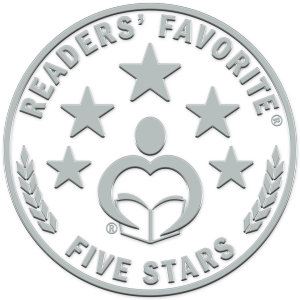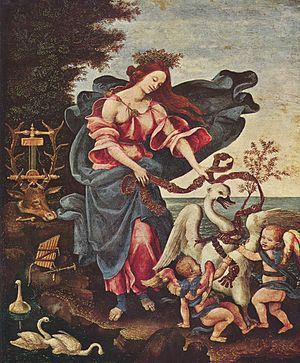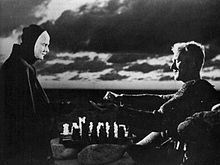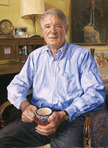William Peace's Blog, page 54
October 12, 2014
Review: Orfeo
I decided to read Richard Powers’ Orfeo (published in January, this year) when it was on the long list of ten novels for the Booker Prize. It has since been omitted from the short list for this year’s prize.
Richard Powers is an American novelist, born in 1957, in Evanston, Illinois. At the age of eleven, he moved with his family to Thailand where he became an avid musician. He began his studies at the University of Illinois at Urbana-Champaign (UIUC) with a major in physics, but he graduated with a BA in English literature, followed by an MA. He worked as a computer programmer in Boston, but he quit that job to devote time to writing. His first novel was published in 1985. In 1992, he returned to the University of Illinois as writer-in-residence. In 2010 and 2013, Powers was a Stein Visiting Writer at Stanford University, during which time he partly assisted in the lab of biochemist Aaron Straight. He was named the Phil and Penny Knight Professor of Creative Writing in the Department of English at Stanford in 2013. He currently teaches a graduate course in multimedia authoring, as well as an undergraduate course on the mechanics of narrative, at UIUC, where he is the Swanlund Professor of English. He has written ten novels and has won a number of literary awards.
Orfeo follows much of the fictional life of Peter Els, a composer, music professor, and amateur bio-scientist. He dabbles in genetic experiments on bacteria and viruses in parallel with music composition, seeing similarities between the infinite variety of music and basic organisms. Els is driven not by fame or fortune, but by a compulsion to compose a piece of music which will have a lasting, ethereal effect on the listener. When he composes a piece which, for the first time, elicits critical acclaim, he refuses offers to stage it again.
The focus of the novel is on the sinister net of terror-prevention which tries to capture him when he becomes a bio-terror suspect, and which he tries to elude.
One has to admire Powers’ multiple competencies as a musician, as a poet and as a technologist. Nonetheless, this is not an easy novel to read. There are no chapters, and the shifts in scene and timeframe are sometimes difficult to follow. I say Powers is a poet because there are frequent passages of music description similar to:
“Then the damning glockenspiel, mute for three songs, silent for so long that the ear forgets the forecast from song one. Child’s toy, funeral chime, light in the night. A bell from out of the pitch-black; a shock but no surprise. A sound that makes hope sound primitive.”
If one is musically literate, and if one is familiar with the piece about which Powers is writing, I’m sure this would be lovely. (I was a singer, and I enjoy classical music, but never learned to read music.) Powers also uses unexpected nouns and adjectives in his descriptions. Sometimes, these seem very clever; at other times they are confusing.
The character of Peter Els is, for me, difficult to relate to: not because he is a musician or a bio-chemist, but because he seems, until near the end, to be a self-proclaimed, born loser. There are not sufficient likeable features with which to empathise. One shakes one’s head each time he makes a stupid mistake (mistakes which Els himself confesses), but there isn’t enough redeeming motivation for the mistake for us to understand and respect him, nonetheless.
Perhaps Powers was not aiming at any particular market when he wrote Orfeo. If you are an amateur composer or a competent musician and someone who is concerned about the encroachment of authority on our freedom of expression, Orfeo is a must read.


September 29, 2014
Creating Reader-Friendly Books
In the October 2014 issue of Independent, the monthly journal of the Independent Book Publishers Association, has an article “On Creating Reader-Friendly Books for Today’s Busy Readers”.
The article is aimed at non-fiction books, but much of the author’s (Jodie Renner) advice is applicable to fiction, as well, except for the first item which recommends the “use of casual language and everyday words for immediate comprehension and inclusion.” If it was ever fashionable to write fiction in casual language and everyday words, it has certainly gone out of style today. One has only to look at the first page of almost any novel on the Booker Prize Long List (I know it has been reduced to a Short List, now) to see the use of unusual words, phrases and construction. It seems to me that this is intended to announce, “I am an innovative and creative writer!” and is not intended to make things easier for the reader. I think that the first page of a novel should be about capturing the readers interest (see my December 3, 2011 blog https://williampeaceblog.wordpress.com/wp-admin/post.php?post=34&action=edit). The use of unusual words, phrases and construction should be confined to intriguing the reader and clarifying the scene better than ordinary text.
Ms Renner goes on to say that one should “write lean; don’t waste the reader’s time”. I think this is good advice: I find myself deleting extra words that contribute nothing when I review what I’ve written.
She recommends “cut down on the use of -ly adverbs. (adjectives converted to an adverb) Instead of propping up a weak, overused verb with an adverb, use a strong, specific verb. Instead of ‘walked slowly’ use strolled, sauntered, ambled, wandered, roamed, or meandered.” In fact, some critics recommend the banishment of all adverbs. I think this is a little harsh, but I confess to using my thesaurus to find a verb that’s more suitable than what first sprang to mind.
She says, “Avoid generic words such as things, objects, stuff, items, persons, places, food, plants , animals, pets, kids, which don’t give the reader an instant visual. “They had lunch in a restaurant” doesn’t evoke a picture for your readers. Be specific and create sensory imagery so readers know the mood of the gathering, visualise the kind of restaurant, and can almost smell the food and hear the sounds.” Sometimes when I’m describing a new scene, I find myself going through a sensory checklist: if I were there, what would I hear, smell, see, and feel (both emotionally and tactilily.)
There are other bits of advice in her article, but for my audience their repetition would be boring.
September 24, 2014
Do Characters Change?
I suppose we enjoy seeing characters whom we like change for the better, and characters we don’t like fail to change and thereby suffer punishment. Although, likeable characters with defect, and who are unable to correct the defect, can earn our sympathy. And then there are characters whom we dislike initially, but who win our sympathy through an act of kindness or a change of heart. I think it’s fair to say that, as a general rule, a reader likes to see characters change: after all, this is what makes them interesting. But, if a character changes too much, to quickly, or in completely unexpected ways, that character can lose credibility and may seem contrived.
As I look back at my novels, and think about how the characters changed during the story, I see some interesting points. Fishing in Foreign Seas was my first novel – a kind of experiment. It is a romance and a business challenge. To me, with benefit of hindsight, the characters are somewhat stereotypical, and they don’t change much. Rather, they learn and grow from the challenges with which they are presented.
Sin & Contrition, my second novel is a kind of morality tale about six characters, friends from the age of 13. They are quite different characters, from different backgrounds. As a result of the temptations each of them faces, a few of them change their values and priorities quite significantly; some do not change much (and probably earn the reader’s condemnation).
The next two novels, Efraim’s Eye and The Iranian Scorpion are thrillers. In both cases, the hero and the villain do not change much at all, but in each case, the key supporting character changes almost beyond recognition. In Efraim’s Eye, the key supporting character is Naomi, who starts out as a naïve, adorable nomad, and by the end of the book, she has become a pragmatic, tough-minded woman. In The Iranian Scorpion, Rustam is the key supporting character. When we first meet him, he is a frightened, insecure, Afghan boy of 15 with sexual fantasies. By the end, he is a confident, secure, married man with a pregnant wife. How did these changes occur? Each of these characters underwent a hammering in the forge of real life, and each of them had the mettle to emerge stronger.
My fifth novel, Sable Shadow and The Presence, is told in the first person by a character who is seeking his identity, and it follows his changes from early childhood to middle age. In a sense, this is a story about the how’s and why’s of character change.
Hidden Battlefields should be published in about six weeks. It is a sequel to The Iranian Scorpion, but each of the four main characters struggles with an internal conflict, the resolution of which changes his or her life quite dramatically. This is a novel about what causes us to change, and how it comes about. By contrast, the two main evil characters, do not change much at all. You can probably guess what happens to them!


September 15, 2014
Review: Sable Shadow and The Presence
Readers Favorite has awarded Sable Shadow and The Presence Five Stars:
Their review of the novel is as follows:
Author: William Peace
Genre: Fiction -
General Appearance: Cover, Construction, Chapter Headings, Illustrations, Table of Contents 5
The appearance of a book makes a dramatic difference in the experience of the reader. Appearance includes everything from an enticing cover and intriguing table of contents, to interesting chapter headings and eye-catching illustrations. This book excelled in all of these areas.
Plot: Concept, Characters, Originality 5
The characters of a book should be well defined, and while they do not have to be likable, the reader does have to be able to form a connection with them. The theme should be consistent and the plot should be original or told from a unique perspective. All of these elements are exceptionally well done in this book.
Development: Description, Dialogue, Creativity, Organization, Length, Fluidity, Coherence 5
Besides the plot, the development of a book is the most critical. The dialogue should be realistic, the descriptions should be vivid, and the material should be concise and flow smoothly. The development of this book is very well done.
Formatting: Editing, Proofreading, Layout 4
Editing and proofreading is where most authors fail. An author should have more than one person proofread their book. The best plot will fail if the reader has to stumble through misspelled words, misused words, bad punctuation, and poor grammar. This book needs a bit of editing.
Marketability: Theme, Subject Matter, Size of Target Audience 5
Marketability refers to how well your book can be marketed and sold. The larger the target audience a book has, the greater the value it will have to publishers and retailers. Although this element is not indicative of the quality of a book, it is important to the success of a book. This book has a wide appeal and can be marketed to many types of readers.
Overall Opinion: Overall Starred Rating 5
This rating takes into account all previous elements and the reader’s overall opinion of the book. This is an excellent, very well written book.
Review: Reviewed by Mamta Madhavan for Readers’ Favorite
Sable Shadow & The Presence by William Peace is the the fictional autobiography of Henry Lawson who hears two voices from his childhood. These two voices represent good and evil and, like any of us, Henry also hears them while making decisions. The story takes us through Henry’s childhood to his college days, to his relationships, to his marriage and his business. Henry suffers a series of tragedies at the peak of his career which sees him attempting suicide. He recovers from that dark phase with the help of his wife and a psychiatrist. It is a story of triumph, tragedy, good, and evil.
The book has many interesting twists and turns in the plot. The author’s fascination for existentialism is revealed through Henry Lawson’s interest in the writings of Jean-Paul Sartre. That contributes a lot of wisdom in the discussions that occur in the story. The characters are well developed and they help in making the plot strong and powerful. There are some thought provoking details on good and evil which give readers an opportunity to think more about their individual beliefs and ideas. I found the representation of the good and the bad voices very practical and relatable. Readers can connect to that very easily.
The character of Henry Lawson has many shades which make him an interesting person. The author has captured well the triumph, tragedy, good, evil, sorrows, and happiness of human life that are palpable
good, evil, sorrows, and happiness of human life that are palpable while reading the book.


September 9, 2014
Review: Favors and Lies
I decided to buy and read a copy of Mark Gilleo’s novel, Favours and Lies, because it received an award at a recent book festival. (One always wants to understand what other successful writers are doing.)
The brief biography at the back of the book says: “Mark Gilleo holds a graduate degree in international business from the University of South Carolina and an undergraduate degree in business form George Mason University. He enjoys traveling, hiking and biking. He speaks Japanese. A fourth-generation Washingtonian, he currently resides in the DC area. His first two novels, Love thy Neighbor and the national best seller Sweat were recognised as finalist and semi-finalist, respectively, in the William Faulkner-Wisdom creative writing competition.”
This photo appears on his website.
Favours and Lies concerns Dan Lord, a private investigator with a law degree and a selected list of clients. He works in the DC area on ‘the blurred line between right and wrong’. When his brother’s widowed sister-in-law, Vicky, and her son, Conner, die under very strange circumstances, Dan takes a particular interest. Vicky dies in an apparent suicide and Conner dies of what seems like a drug overdose. Neither of these deaths make sense to Dan. Then the detective who was investigating the deaths of mother and son is killed, as is the son’s girlfriend. Dan finds that the records of several key phone calls have disappeared, and Dan engages a computer wizard to find out what happened to the phone call on-line records. There is a secretive company, the address and phone number of which are unlisted. There is a high class madam, a Russian intelligence officer, a medical doctor, a barber, a martial arts trainer an assistant district attorney, a night club owner, with whom Dan exchanges favors and lies in order to find the killers of his relatives. Some of these people end up dead; Dan, nearly so on several occasions. Toward the conclusion of the novel, we learn the reason for Conner’s death, and of the illegal conspiracy which lay behind it. The motivation for Conner’s death and those responsible is quite a shocking surprise. Fortunately, the favors given to Dan by those friends who remain alive are repaid.
Favors and Lies is a fast-moving book, which is difficult to put down: one wants to find out what happens next. The characters are distinctive and interesting, but they are ‘on stage’ for such short periods, in many cases, and described in terms of their appearance and history more than in terms of their values. One feels little empathy for many of them, the exceptions being Dan and Detective Wallace. The dialogue is clipped and punchy, fully in keeping with a fast-moving detective thriller. The locations of the various scenes are described is such detail that one senses the author’s pride in his familiarity with the streets of the US capital. There is some technology on which the plot for Favors and Lies depends, but it is pretty much understandable. For me – a very literal-minded person – the difficulty I have with Favors and Lies is the credibility of the plot, taken as a rapid-fire whole. But, in the genre of gripping, no-holds-barred detective stories, there are few better.


August 30, 2014
A Critic’s Article
There was an article by Rowan Pelling in The Daily Telegraph recently. Since the article had to do with literary criticism, I took an interest in it.
According to Wikipedia, Rowan Pelling is a British journalist, broadcaster, writer and stand-up comedienne who first achieved note as the editor (or “editrice”, to use her term) of monthly literary/erotic magazine, the Erotic Review. She was a judge of the 2004 Man Booker Prize. She is now a columnist for the Daily Telegraph, is working on her first novel, and is the mother of two sons.
Ms Pelling’s article (her photo is above) is as follows:
“It is easy to recall the moments in my life when I’ve been so overwhelmed by sudden shame and remorse that I’ve prayed for a meteorite to smite me on the spot. One occurred this summer, as I walked into the green room of The Curious Art Festival at Hampshire’s Pylewell Park. I greeted a friend who gesticulated to the table behind him, saying, “You must know Fay Weldon.” Yes, yes, I know – by daunting reputation – the celebrated writer and feminist icon. You could even say she’s welded on my brain, because I gave a complete stinker of a review to an erotic novel written under a pseudonym; only to be told, once I’d submitted it, that the author was almost certainly Weldon. By then, I’d dismissed the book at “fearful tosh” and opined that it read “like one of those saucy stories written by schoolgirls and passed under the desks at RE”. I considered asking my editor to soften my view as I am generally a big fan of Weldon’s oeuvre. . . . However, my first duty as a reviewer was undoubtedly to the reader, and I wasn’t sure they would be well advised to allocate hard-earned cash to a pseudo-Dennis Wheatley sex romp. So the review ran in its unflattering entirety pointing me inexorably to the day when I would stand quaking before Weldon, wondering whether it was best to apologise, or hope that merciful amnesia had drawn a veil over the episode. But long experience tells me that praise, however extravagant, will be absorbed, or taken as one’s due, while criticism, however trivial, will remain engraved on the artist’s heart. So I grovelled and blushed and the leonine Weldon was magnanimity personified.”
Ms Pelling goes on to mention several instances where authors and film-makers reacted with a mixture of hurt and venom to savage reviews by other critics.
She goes on to say: “Yes, it’s far easier to sit at your desk and take an entertainment apart than to actually write a novel and, yes, any fool with a blog can stumble home drunk and say they loved a film. The difference, however, is that you don’t feel that accountable when you tell your Facebook friends you gave a great big “Meh” to The Grand Budapest Hotel. When you put those judgments into print, however, you feel enormous responsibility; but not primarily to the work’s creators. In an over-stimulated, time-poor world it is ever more the critic’s job to steer his or her readers firmly towards what most deserves their split attention. . . . What’s certain is that not only do critics need rhino hide to function, so do writers who post painstaking works of creativity out in the harsh spotlight. I understand the desire to call reviewers to task, but an offended writer will appear more powerful if they float above the controversy with regal detachment.”
She concludes by saying: “There’s one thing all critics know: you can’t take it back.”
To Ms Pelling’s article, I can only add: “Amen!”


August 22, 2014
Allegory
My seventh novel is going to be an allegory. It will be written in the first person and set mainly in the Middle East. The themes will be philosophical, theological, psychological and social. I have never written an allegory before (at least not knowingly), and I think it will be an interesting challenge. But more importantly, I think an allegorical approach is the most effective way to communicate with the reader about the themes I have in mind.
In this instance, the indirectness of allegory is what appeals to me: themes are suggested to the reader without being specific, and the reader is at liberty to interpret the themes in her/his own way. In my view, this approach adds richness to the presentation.
Wikipedia defines ‘allegory’ as: “a rhetorical device in which characters or events in a literary, visual, or musical art form represent or symbolize ideas and concepts. Allegory has been used widely throughout the histories of all forms of art; a major reason for this is its immense power to illustrate complex ideas and concepts in ways that are easily digestible and tangible to its viewers, readers, or listeners. An allegory conveys its hidden message through symbolic figures, actions, imagery, and/or events.”
A visual example is this painting, ‘Allegory of Music’, by Filippino Lippi; painted in 1475 to 1500:
I have to confess that I ‘don’t get it’ when looking at this picture. Perhaps that is because it makes use of Greek mythological symbols which were popular during the High Renaissance. But I concede that the painting does evoke feelings of motion, as with music.
Last night I watched the Ingmar Bergman film The Seventh Seal, which was released in 1957 in black and white. I remember being a fan of Ingmar Bergman when I was in university, but I don’t think I ever saw this particular film before. The film is considered a major classic in world cinema, perhaps because of its scenes and allegorical content. While I certainly enjoyed watching it, I have to admit that it would not be a money-maker if it were released today. In the film, Bergman transports the viewer to Sweden in the early Middle Ages. The principal character is a knight who has returned home from a crusade a the time the Black Death is sweeping through Sweden. The knight feels that his life has been wasted and fears for his death. He wants to perform ‘one meaningful deed’, and longs to hear the voice of God.
In this scene from the film, the knight (on the right) offers Death his choice of chess pieces; Death chooses black.
The film is peopled with diverse characters: a woman who has been condemned to death for speaking with the devil; Death himself who play an extended game of chess with the knight; the knight’s wife who has waited for him all these years; there are religious zealots, criminals, actors, and immoral people. For me, Bergman seems to be saying something like the following: God and the devil are invisible, and God may seem silent; death is inescapable; and ‘one meaningful deed’ may be enough.
Bergman is never specific in his points. For me, this is the beauty of allegory. The reader (viewer or listener) has to form his or her own conclusions.
In any event, this film gets one thinking.


August 11, 2014
Email to Amazon
I sent the following email to Jeff Bezos, Chief Executive of Amazon.com today.
Dear Jeff,
I have taken an interest in Amazon’s dispute with Hachette and various authors for two reasons. I, myself, am a published author (five novels and two more in the pipeline). I am also a senior management consultant.
First, let me say that as a buyer of books (and many other things, including mosquito-repellent bracelets), I find Amazon to be an excellent supplier: good prices, extraordinarily wide choices, very prompt delivery, and plenty of product information, including other customers’ reviews.
As an author, I am pleased to see my books presented in colour, thoroughly described and reviewed, and available from stock. I am less pleased to see the price levels to which they are discounted for two reasons. First, every dollar of discount Amazon offers to buyer means fifty cents out of my pocket. It is in this sense that authors are not being used as ‘human shields’ by the publishers. We aren’t hostages; we, too, are under attack! And, second, I believe Amazon is ‘leaving money on the table’ with such large discounts. In other words, prices are less elastic than Amazon apparently believes. More on this later.
As I understand it, Amazon has two objectives in pursuing greater discounts from the publishers: one explicit and the other implied. The explicit objective is to recoup the losses Amazon has recently suffered ($126 million net loss in the second quarter of this year). The implicit objective is to have nothing between the author and the reader.
I have no problem with the explicit objective – depending on how it is pursued. The implicit objective is more complicated. I can understand how Amazon would like to be the ‘transformational vehicle’ between the author’s output and the reader’s input. The problem is that there is a huge collection of what Amazon probably regards as time-honoured baggage in that gap between the author and the reader. Why doesn’t the author just sell his output to Amazon (for which s/he would be handsomely rewarded) and Amazon would produce (mostly) ebooks for readers (for which service it would be handsomely rewarded)? A sensible objective, on the face of it. But, there are powerful opposing forces which may be irrational, but will, nonetheless, be difficult for Amazon to overcome.
The first of these forces is that some readers (like me) love the sense of a physical book, and will not buy an ebook. (Although, all of my novels are also available as ebooks.) For me, the physical presence of a book while I’m reading it, and in knowing that it’s on my bookshelf, far outweigh the ‘convenience’ and lower cost of an ebook. Will we – hard-copy addicts, who are currently in the majority – disappear over time? Possibly. But not for at least a generation.
Aside from physical printing, there are other tasks which lie in the gap between author and reader. Amongst these tasks are author and book selection, editorial advice, editing, cover design, administration and a wide variety of sales, marketing and promotional services. Some of these tasks can be carried out by the author at additional cost to the author, but many authors, particularly best-selling authors, would object to being ‘burdened’ with these tasks. Is Amazon prepared to scale up or make acquisitions to ‘fill these gaps’ between author and reader?
Then, there is the whole contentions issue of literary/artistic/professional gatekeeping. Currently, publishers and literary agents largely decide who and what gets published. They may not always make the right choices, but the fact is that their choices are generally supported by professional critics and educated readers. Is Amazon prepared to hire a host of these gurus, or would Amazon’s strategy be: ‘Let the Market decide!’ If Amazon would opt for the latter strategy, I suggest that the outcome would be catastrophic: a market saturated with low-quality, popular books: a situation which would not be tolerated by educators or educated readers. It is wise to recall that literary gatekeeping grew up with the publishing industry out of demands by an educated market.
So, what would I, as a professional management consultant, advise Amazon to do? I would advise Amazon to proceed very cautiously in its efforts to fill the gap between author and reader: a misstep could be punitive (from the market or from government). I would recommend that Amazon raise its prices, across the board, by an average of 2.5% real for each of the next two years. This 5% price increase will not (in my opinion) result in an equivalent reduction in sales. Amazon is well known for its low prices and gradual, selective price increases will not affect that reputation. Pessimistically, there could be a 2% decrease in sales from $80 billion to $78.5 billion. $78.5 billion at 5% higher prices will yield almost $4 billion in additional annual profits.
This course of action would not only makes Amazon look very attractive to its shareholders; it would facilitate amicable agreements with publishers and authors; it would stop the criticism from the media and the marketplace; and would cause government regulators to lose interest.
Yours sincerely,
William Peace


August 8, 2014
More: Amazon vz Hachette
My last post mentioned the dispute between Amazon and Hachette (the fourth largest US publisher) in which Hachette has refused Amazon’s insistence on paying Hachette less for its books, and in which Amazon is delaying the shipment of orders for Hachette’s books. Now 900 authors have entered the fray, as this article in yesterday’s New York Times states, in part:
Douglas Preston, who summers in this coastal hamlet of Round Pond, Maine, is a best-selling writer — or was, until Amazon decided to discourage readers from buying books from his publisher, Hachette, as a way of pressuring it into giving Amazon a better deal on e-books. So he wrote an open letter to his readers asking them to contact Jeff Bezos, Amazon’s chief executive, demanding that Amazon stop using writers as hostages in its negotiations.
The letter spread through the literary community. As of earlier this week 909 writers had signed on, including household names like John Grisham and Stephen King. It is scheduled to run as a full-page ad in The New York Times this Sunday.
Amazon, unsettled by the actions of a group that used to be among its biggest fans, is responding by attacking Mr Preston, calling the 58-year-old thriller writer “entitled” and “an opportunist” while simultaneously trying to woo him and his fellow dissenters into silence.
Mr Preston, pictured, right, is un-swayed.
“Jeff Bezos used books as the cutting edge to help sell everything from computer cables to lawn mowers, and what a good idea that was,” he said. “Now Amazon has turned its back on us. Don’t they value us more than that? Don’t they feel any loyalty? That’s why authors are mad.”
This latest uproar in Amazon’s three-month public battle with Hachette comes at a vulnerable moment for the Internet giant, which is rapidly transforming itself into an empire that not only sells culture but creates it, too.
Amazon does not want to be seen as hostile to content creators, one of the four groups it says on its investor relations web page it is expressly set up to serve. But it also has to price their creations cheaply enough to draw hordes of consumers, while at the same time making enough of a profit to satisfy investors.
It is a complicated balancing act. Some argue it is impossible. Amazon just surprised Wall Street by saying it may lose more than $800 million this quarter, potentially wiping out its profits for the last three years, partly because creating video content is expensive. The prospect of this unexpected loss has raised questions about whether Amazon’s money-losing ways are finally catching up with it — and whether that is the real reason it is making new demands on publishers like Hachette.
Amazon has been forced by the controversy to shed its long-time practice of refusing to comment on anything. Asked about the writers’ rebellion, it issued a statement that put the focus back on Hachette, bringing up the Justice Department’s antitrust lawsuit against Hachette and other publishers in 2012: “First, Hachette was willing to break the law to get higher e-book prices, and now they’re determined to keep their own authors in the line of fire in order to achieve that same end. Amazon has made three separate proposals to take authors out of the middle, all of which Hachette has quickly dismissed.”
Mr Preston pointed out it was Amazon that put the authors in the line of fire in the first place. Russell Grandinetti, Amazon’s vice president for e-books, has called Mr Preston twice in recent weeks, trying to get him to endorse the company’s proposals to settle the dispute, as well as to pipe down. The most recent proposal would have Amazon selling Hachette books again, but with Hachette and Amazon giving their proceeds to charity.
No thanks, Mr Preston said. A proposal that weakens Hachette by cutting its profits was not in the interests of Hachette’s authors. But he took the opportunity to ask Mr Grandinetti why Amazon was squeezing the writers in the first place.
His response, according to Mr Preston: “This was the only leverage we had.” Amazon declined to comment.
“It’s like talking to a 5-year-old,” Mr Preston said. “ ‘She made me hit her!’ No one is making Amazon do anything.”
No one is making Mr Preston do anything, either. He dismisses Amazon’s suggestions that he is a “human shield” for Hachette, one of the Big 5 publishers in the United States. He and the other writers say they are acting independently. Most, in any case, are not published by Hachette.
Mr Preston is not sure how he has found himself in charge of a group calling itself Authors United. “I don’t like fighting,” he said. “I’m a wimp. When the bullies in seventh grade said they would meet me in the parking lot after school, I made sure I was nowhere near it.”
Other writers who signed the letter include Robert A. Caro, Junot Díaz, Malcolm Gladwell, Lemony Snicket (the pen name of Daniel Handler), Michael Chabon, Michael Lewis, Jon Krakauer, Scott Turow, George Saunders, Sebastian Junger, Philip Pullman and Nora Roberts.
“We feel strongly that no bookseller should block the sale of books or otherwise prevent or discourage customers from ordering or receiving the books they want,” the letter states.
Some writers wholeheartedly supported the letter but were afraid to sign, Mr Preston said. A few signed it and then backed out, citing the same reason. The Times ad, which cost $104,000, was paid for by a handful of the more successful writers.
I’m sure there’ll be more to come!


August 1, 2014
“Up Against Amazon”
There is an article in the August 2014 issue of Independent, the journal of the Independent Book Publishers Association that I’d like to share with you. It is written by Karen Christensen, who is a publisher, author, journalist and blogger. She wrote:
“Amazon doesn’t just take orders. It is used to barking orders at publishers and getting us to salute. But bullying only goes so far, and I’m thankful that a single large publisher, Hachette, stood up to it and that the New York Times ran an editorial about its strong arm tactics.
“I’ve been sitting on my own Amazon story for a while after receiving a threatening phone call from its legal department when I refused to agree to a unilateral change of terms. But with all the publicity and debate about Hachette, I thought other publishers, as well as Berkshire Publishing’s (the author’s publishing company) friends, colleagues and customers might like to know about our experiences and why I believe that Amazon is destroying healthy competition in the publishing world.
“I am and academic publisher as well as an environmental author (with one book publisher by Hachette, in fact). My company is very small. Amazon has a market cap of $US 141 billion. “They have infinite resources,” said a friend when I told him that I had received an angry phone call from Amazon.com’s legal department. The telephone call wasn’t to discuss terms, but to threaten me for “telling lies about Amazon”. What I had written was that if we had to stop supplying Amazon I would have to write to all my customers, authors and colleagues to tell them why.
“My fight with Amazon began when it decided to go after traditional “short discount” publishers (academic presses as well as presses like Berkshire Publishing) with a unilaterally imposed change in business terms announced only in a “case note” within their order processing platform. This platform is normally used to inquire about the availability of certain books and is used by customer service staff.
“A colleague of mine whose staff was puzzled enough to pass the “case note” along to him asked Amazon to contact him directly by telephone or email, saying that business terms were a matter for our company’s executive team. Amazon refused to talk – communication would take place through the “case”.
“Berkshire Publishing had sold print through Amazon since 2006. Although it originally demanded a 40% discount – four times our standard – I decided we should make books available through any major platform that individual readers and libraries use. Out authors like knowing that their books are readily available worldwide. And we reach some people who wold never otherwise know about our titles. In fact, I was recently at a meeting in Beijing and showed a copy of our book This is China: The first 5000 Years. Two of the people there started whispering and giggling, and finally one spoke up, “I have that book. I ordered it from Amazon!”
“Amazon’s demand in 2012 was for a an additional 5% bringing the discount to 45% (some academic presses had been at 25%, so the change to 45% meant a reduction of 80% in their net income from Amazon sales). Bookstores generally get a discount of 30-40%. Amazon has been getting 50-55% from big trade presses, and the current battles are part over further discounts that Amazon is demanding to increase its marginal profits.
“It is not only publishers who are affected (who, after all, really feels sorry for publishers?); independent bookstores cannot compete with this kind of pricing. Amazon discounting also affects authors, because may book contracts specify a lower royalty percentage if the discount is 50% or higher.
“In the end it is readers – students, professionals and those who read for pleasure – who will suffer because innovative writers won’t get the chance they deserve and hard-working midlist authors won’t be able to afford the time they need to write.
“And who says cut-rate pricing will continue after Amazon’s market dominance is assured? Publishers, including self-publishers love the 70% Amazon pays them on e-books now, but the split was 70% for Amazon until after agency pricing, and the contract allows Amazon to change it at any time. There is no reason to think that the company won’t impose changes on any group of suppliers (which is what we authors and publishers are).
“Amazon, by the way, does not necessarily pass those discounts on to the customer. Most Berkshire books are educational reference works that sell for hundreds of dollars; Amazon has generally sold them at full price, keeping that substantial “discount” as its profit, which is far greater than our profit on our own books.
“Amazon is destroying competition and innovation because it is not letting the market determine winners and losers, but is instead making the selection itself, deciding arbitrarily where to take its pound of flesh and shore up its feeble margins. Publishers (and authors) would be fine if they were actually competing with one another for sales without Amazon sucking the life out of every transaction.
“Finally, what happened? Are Berkshire Publishing titles available through Amazon? Dear reader, I capitulated after four months. It wasn’t fair; it wasn’t good for anyone but Amazon, but I was losing sales that I needed and I gave in. Amazon made one change, too: it hired its first small-press liaison, and I met her at BookExpo last year. I didn’t her from her this year and have no idea if that department of one still exists, but I hope that in the future we will be able too discuss and agree on terms that make sense. “Hurray” for Hachette and for everyone else who is now standing up to Amazon.”
I’ll cover the Hachette – Amazon dispute in a later blog, but I have some comments on Ms Christensen’s article. Certainly, as a small publisher one has to have some real sympathy for her: she has a very tough business. It is unconscionable that a giant purchaser like Amazon tried to slip in a major change in its terms of business without proper notice or discussion. That is the worst kind of arrogance. She is also correct that Amazon’s pressure for large discounts affects authors. In my particular case, for every additional increment of discount which Amazon takes, I lose half of that increment in royalties. Who consults me about that? No one.
It seems to me that the Amazon business model is designed to weaken, if not to destroy, independent bookstores. Their discounting structure makes it difficult for small bookstores to compete. I’m sure that Amazon would deny that their discounting is predatory. They would say that they have the title that the buyer wants in stock, so that the buyer can have a copy as quickly as the following day, instead of having to wait a week, or more. They would also point out that they don’t have the option of returning unsold books to the publisher for full credit, as bookstores do. And, they would point to a number of value added features on their website, including descriptions, reviews, and copious author information.
Still, it’s Amazon’s apparent ‘might makes right’ attitude which is troubling. From Ozymandias to his modern day counterparts, arrogance invariably destroys its owner.



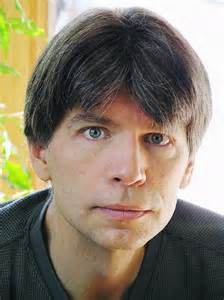
![IBPA_proudmember_1-175w[1]](https://i.gr-assets.com/images/S/compressed.photo.goodreads.com/hostedimages/1412278907i/11350382.jpg)


